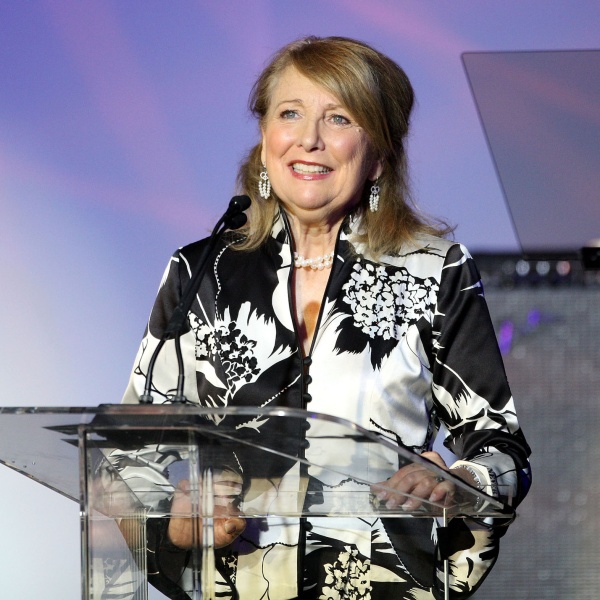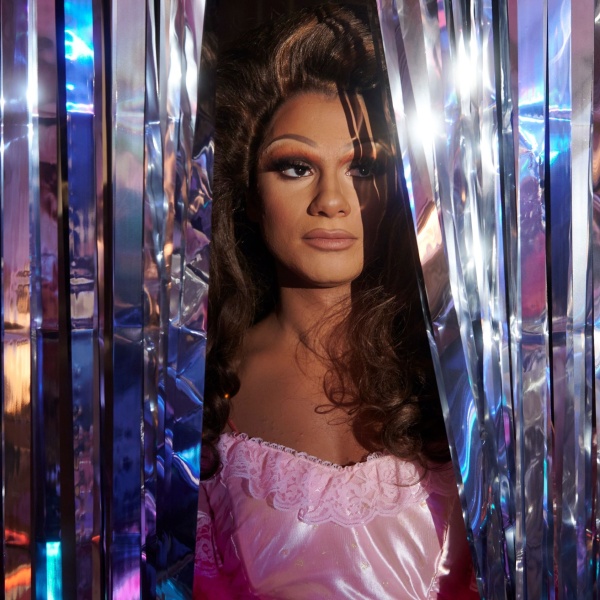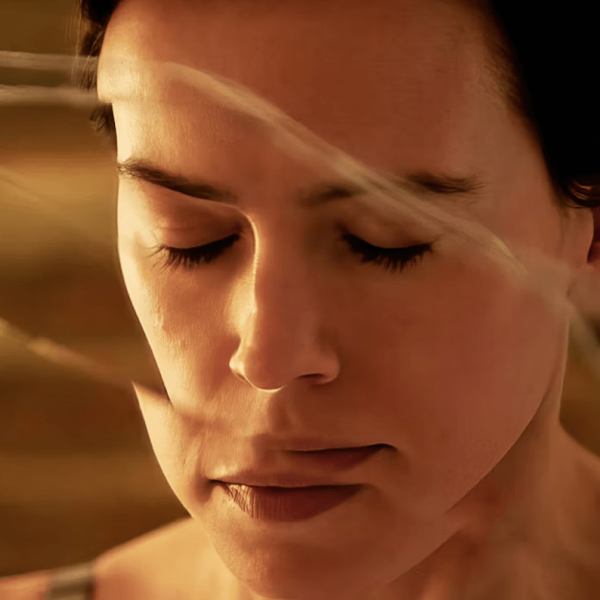
While 2009 seemed to burst at the seams with numerous ace soundtracks — largely thanks to new films from Wes Anderson, Spike Jonze, Jim Jarmusch, Greg Mottola and Quentin Tarantino — unless you were a “Twilight” fan, pickings were a lot slimmer this year for well curated songs in films (though, as you’ll see, there were some definite standouts). However, as if to compensate, composers stepped it up considerably with old reliables like Hans Zimmer, Clint Mansell, Carter Burwell and Michael Giacchino delivering the goods while left field surprises like Daft Punk and Trent Reznor shook up the stodgy old boys club with compelling, highly original work. Here’s the music from films that rocked our iPods in 2010.
The Best Scores Of 2010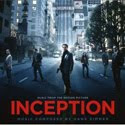 “Inception” – Hans Zimmer
“Inception” – Hans Zimmer
There were few stronger marriages of score to film than Hans Zimmer’s glitchy, tense “Inception” score, which seemed to swell and coast off the action beats of Chris Nolan’s trippy dream-weaving narrative. Nolan’s engaging visuals and breathless third-act pacing would be just another Bond riff without the pulsing action tempos of Zimmer’s career-best work. We’ve had “Mombasa” blaring on our iPod all year as we breathlessly race to the post office, and we bet we aren’t the only ones.
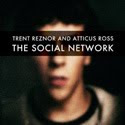 “The Social Network” – Trent Reznor and Atticus Ross
“The Social Network” – Trent Reznor and Atticus Ross
Much of the criticism of “The Social Network” stems from one of its strengths, that the film is too “cold” and “ethereal” to make an impact with a certain subset of moviegoers. Part of that comes from the wonderfully alien riffs of Nine Inch Nails bandmates Trent Reznor and Atticus Ross, who borrowed bits and pieces from NIN’s own experimental Ghosts albums to create the sound-scape for David Fincher’s rich youth nightmare. Portions of “The Social Network” where Fincher’s camera lingers over the dark, cavernous Harvard campus play like science fiction, as if there weren’t a crueler, more dangerous atmosphere for a directionless young person to be in. Adding to this are the razor-sharp beats of the duo, who created a nightmarish horror movie sound tracking for the rise of a natural supervillain.
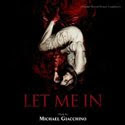 “Let Me In” – Michael Giacchino
“Let Me In” – Michael Giacchino
Like almost everything else about “Let Me In,” Matt Reeves‘ Americanized remake of Swedish vampire thriller “Let the Right One In,” the score by Pixar stalwart Michael Giacchino was a big, worrisome question mark. But, like everything else about “Let Me In,” his sweeping, magisterial music, expertly combining huge, gothic flourishes with small-scale moments that capture the movie’s riveting emotional core, exceeded all expectations. Since approximately 12 people saw “Let Me In” during its all-too-brief theatrical run, we’ll describe Giacchino’s contribution as expertly fusing the heart-tugging emotionality of his Oscar-winning “Up” score with the more baroque heft of “Roar,” his end credits music from “Cloverfield.” Like everything else Giacchino-related, this was totally brilliant and totally unexpected.
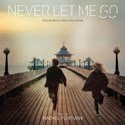 “Never Let Me Go” – Rachel Portman
“Never Let Me Go” – Rachel Portman
Poor “Never Let Me Go,” Mark Romanek’s well-intentioned and austere sci-fi dystopian film that did everything we hoped it would — which is pretty much the polar opposite of Romanek’s unfortunately flashy “One Hour Photo.” Somehow the pendulum swung too far in the opposite direction, and the subtle and mannered film became practically subterranean in its emotions. Like Edgar Wright said in his underrated top 10 list, the picture did have the courage of its convictions and there’s no doubt about that. The style of the film was impeccable and perhaps the most heart-stirring aesthetic of an emotionally suppressed film was its lovely and soul-aching score by Rachel Portman (“Chocolat,” “The Cider House Rules“). Piano-impressionistic and forlorn, perhaps the wordless score did best what the characters in the film could not do, express the longing for a richer experience in life and the frustration and sadness that comes with the realization that this is simply not possible for their kind.
 “True Grit” – Carter Burwell
“True Grit” – Carter Burwell
No disrespect to the great Elmer Bernstein, but almost everything about the Coen Brothers’ version of “True Grit” — including its score — is better than the 1969 original (which we may find ourselves bad-mouthing a few times in these various features, forgive us, Duke). While Carter Burwell’s score incorporates excerpts from the gospel hymns “Hold to God’s Unchanging Hand,” “What a Friend We Have in Jesus,” “Talk About Suffering,” “The Glory-Land Way” and “Leaning on the Everlasting Arms,” and therefore has been disqualified for Oscar consideration, it’s still a moving and inventive piece of work and also, one of Burwell’s most emotional and subtle. The river crossing scene in the picture is absolutely rousing and steely-eyed; a true display of determination and guts from an iron-willed 14-year-old girl, and it’s the aptly named “River Crossing” piece from Burwell that lends it an emotional resonance that practically makes you want to tear up, it’s such a moment to behold. Throughout, Burwell’s score has simple, but beautiful notes with a little melancholy underbelly which suits the film just fine.
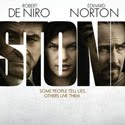 “Stone” –Jonny Greenwood, Thom Yorke, Jon Brion, John Curran
“Stone” –Jonny Greenwood, Thom Yorke, Jon Brion, John Curran
How on Earth did this not get an official release? For anyone who saw the surprisingly not-bad “Stone,” one of the standouts was the film’s decidedly left-of-center soundtrack. And with good reason. It turns out Edward Norton is good buds with the Radiohead dudes and while they couldn’t pen a soundtrack, Thom Yorke and Jonny Greenwood did send over a bunch of sound files and experiments. Jon Brion recorded some stuff as did John Curran, and then some sound engineers cut and pasted the various bits and pieces to create a truly stunning mix of atonal rhythms and textures. Frankly, there was nothing else like it this year and it perfectly served a film whose thematic reach went far beyond Robert De Niro eyeballing Norton’s cornrows.
 “Rabbit Hole” – Anton Sanko
“Rabbit Hole” – Anton Sanko
The dictum for John Cameron Mitchell’s third feature “Rabbit Hole” seemed to be: keep it simple and Anton Sanko’s plaintive, wistful score — which could have been overwrought given the theme of grieving over lost ones — stayed on message. Owen Pallett of Final Fantasy was originally supposed to score the film, but he had to back out. Then up-and-comer Abel Korzeniowski, who wrote the stunningly gorgeous and rapturous “A Single Man” soundtrack was pegged to write the score, but he too had to bail. While Sanko had some big shoes to fill, not to mention make up for huge, then disappointed expectations, he met the challenge head on, delivering a dolorous, and elegiac, yet not sad-sack score filled with hints of hope, redemption and compassionate recovery. Several moments of this affecting drama are heart-stopping and emotionally gut-wrenching. Sanko holds your hand into the scene affectionately, and then eventually lets you go, leaving you to greet the painful, but necessary emotions with the essential amount of grace and dignity.
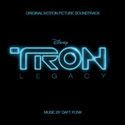 “Tron: Legacy” – Daft Punk
“Tron: Legacy” – Daft Punk
There was no greater gulf between the quality of a film and its soundtrack than there was with “Tron: Legacy,” which throbbed with the precise beats of the French techno duo underneath Standard Sci-Fi Plot #45. We confess to jamming to this soundtrack before the film, so while the film certainly didn’t jazz us up, it was hard to avoid the sheer sonic onslaught of the End of the Line bar sequence, where the film’s best cuts roll into each other courtesy of Daft Punk, themselves DJing an all-out good vs. evil battle from within the movie. Even with the lameness of the entire endeavor, it registered as the coolest cameo, and one of the coolest music moments in the movies of 2010.
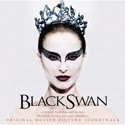 “Black Swan” – Clint Mansell
“Black Swan” – Clint Mansell
When we spoke to Darren Aronofsky a few weeks ago about his brilliant psychosexual horror-show “Black Swan,” he directed us to Clint Mansell‘s score as an encapsulation of what he was trying to do with the film itself. Mansell took Tchaikovsky’s immortal ballet, chopped it up, rearranged it and made something that was entirely new and riveting. The sequence of the music in “Black Swan” even follows the same course as the original ballet. Not that you need to know any of that to be totally floored by Mansell’s contribution to the film. Reverential without being self-congratulatory, the score not only brings you even further into the scrambled mind of Natalie Portman‘s cracked ballerina, but blurs the line between score and sound effects, movie and ballet and creates a whacked-out musical experience all its own.
 “How to Train Your Dragon” – John Powell
“How to Train Your Dragon” – John Powell
Perhaps more than anything this year, the score for “How to Train Your Dragon” had a heavy load to carry — between a brace of montage sequences early in the film, and the transcendent flying scenes, a killer musical backdrop was going to be essential. DreamWorks Animation veteran John Powell, who’d co-written no less than five scores for the company, took on solo duties for the first time and knocked it out of the park. Best known for his pumping scores on the “Bourne” trilogy, Powell pulls out every trick in his box — pan pipes and even bagpipes crop up, giving the score a kind of cultural identity but without hammering you over the head with its Celticness. Powell nails the quieter, subtler moments, but when Hiccup and Toothless take to the skies, as on the top-notch “Test Drive,” the score really, excuse the pun, soars.
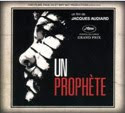 “A Prophet” – Alexandre Desplat
“A Prophet” – Alexandre Desplat
Alexandre Desplat has quickly become one of the most sought-after composers in cinema today, bouncing back and forth between big budget tent poles (“Twilight: New Moon,” the final “Harry Potter” movies, “The Curious Case of Benjamin Button”) and arthouse/foreign/indie films (“Fantastic Mr. Fox,” “Birth,” Terrence Malick’s upcoming “The Tree of Life”). He’s continued a fruitful collaboration With the supremely talented French auteur, Jacques Audiard, creating scores for all of his films. The teaming hit new heights with “A Prophet,” one of the best films of this year, or 2009 (depending on when you were able to see it). It is with Desplat’s subtle underscoring that the film’s more supernatural aspects work, creating a mood that is reflective and haunting as we see our hero, Malik (played by Tahar Rahim, in a star-making performance) learn to navigate the prison and criminal hierarchy. But Desplat also knows how to ratchet up the tension when necessary, giving the methodical, deliberately-paced film a jolt of energy when needed (check out the track titled “Gunfight”) for the occasional bursts of violence. The score also blends nicely with some choice songs (Turner Cody’s “Corner of my Room” stands out).
 “I Am Love” – John Adams
“I Am Love” – John Adams
The film was years in the making and always conceived with the music of modern composer John Adams in mind, but let’s face it, if he turned down director Luca Guadagnino, “I Am Love” simply would not have been the same. The relentlessly opulent film that dressed up a modern twist on a classic story of love gone awry and astray in a well-heeled family benefited enormously from Adams’ deeply stirring and evocative pieces. It’s simply hard to imagine the film’s closing sequence — one that reduced us to a pile of mush — without the eminently gorgeous strains of “Harmonielehre: Part III – Meister Eckhardt and Quackie,” a piece as raw-hearted and vulnerable as Tilda Swinton’s Emma as she beautifully, desperately, finally chooses love.
 “Scott Pilgrim Vs the World” – Nigel Godrich
“Scott Pilgrim Vs the World” – Nigel Godrich
It was hard to pin down what, exactly, Nigel Godrich’s contribution to “Scott Pilgrim Vs the World” was. This isn’t a knock. Godrich, a skilled producer more famous in England than here (he’s kind of like an indie rock Timbaland, having produced landmark albums for Beck and Radiohead) wrote his first film score for the film, but it’s hard not to get a little fuzzy about where it begins and ends, considering the cacophony (both aural and visual) that largely fills Edgar Wright’s antic comic book adaptation (not to mention the myriad contributors that Nigel directed like members of Broken Social Scene and Supergrass). The score album is filled with ambient bits of electronic music and noise, easy to miss while watching the film and easier to appreciate by listening to it on its own. And what could beat his glitchy, 8-bit version of the Universal theme that opened the movie?
 “Monsters” – Jon Hopkins
“Monsters” – Jon Hopkins
So, “Monsters” turned out not to have been quite the 2010 answer to “District 9” it was mooted to be — it was a much smaller, stranger film than that. Love it or hate it (and we can see plenty of reasons for either), there was no mistaking its power as a technical achievement, and as stunning as the direction and visual effects were, considering the budget, the music firmly deserves to be included among them. The first full score from British electronica artist Jon Hopkins, a collaborator of Brian Eno and Coldplay, it’s the unsung hero on this list. Short of any of the bombast it could have included, it’s a remarkably subtle piece of work, reminiscent more of a synth-upped version of recent scores by Nick Cave & Warren Ellis than anything else. The word that comes to mind as you watch the film is awe, and that’s thanks in a big way to Hopkins’ contribution here.
 “The Ghost Writer” – Alexandre Desplat
“The Ghost Writer” – Alexandre Desplat
Alexandre Desplat, who has won a number of awards already for his work in 2010, turned in brilliant, moody work on Roman Polanski’s spooky thriller. This is a unique-sounding score, utilizing haunting woodwinds frequently leading into the surprising bass of the aggressive timpani, which creates a sonic dropping sensation adding to the unease of the twisty thriller conventions of the film. Musically, it’s never certain where the melody will take you, the mark of truly great movie music.
 “Get Him To The Greek“
“Get Him To The Greek“
Jason Segel and company did a solid job penning tunes for shock rocker Aldous Snow and his band, creating a full album of material more inspired than the movie that, um, inspired it. From INXS-style stutter riffs to arena rock, Snow’s fake band Infant Sorrow does double entendre rock (“The Clap”), sincere Cold playing (“Bangers Beans And Mash“) and even disastrous third-world-flavored awfulness (“African Child”). Bonus points for the truly terrible sex pop penned for Britney manqué Jackie Q played by Rose Byrne, including such musical bon mots as “Pound Me In The Buttox” and “Supertight.”
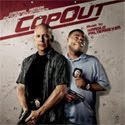 “Cop Out” – Harold Faltermeyer
“Cop Out” – Harold Faltermeyer
Kevin Smith set out to make a C-grade cop movie from the 80’s in “Cop Out” and instead produced a D-league copycat, which, in fairness, wasn’t too far off from his intentions. His greatest masterstroke, however, was bringing on German musician Harold Faltermeyer, a remnant of the ’80s whose synth sound hasn’t been relevant for more than 20 years (“Top Gun,” “Beverly Hills Cop,” and Smith’s beloved “Fletch“). He really leans on that farting synth, creating a slinky, off-kilter rhythm the film would, more or less, follow. A terrible picture, but an inspired composer selection.

Honorable Mention
It’s odd that in a year that features an Alejandro González Iñárritu film and therefore a score by the great Gustavo Santaolalla isn’t on our full-blown list, but the Argentine’s score to “Biutiful” is pretty minimalist and subtle, so much so that we don’t even remember much of its use in the incredibly devastating mortality drama. Another super subtle and minimalist score is Michael Brook’s ambient humming drones used in David O. Russell‘s “The Fighter” — which is mostly source-based music by Led Zeppelin, White Snake, The Breeders and other rockers — but when it swells up above the din, it does leave a nice mark. “The Book Of Eli” pretty much confirms our worst fears; the Hughes Brothers are hacks who started out strong, yet Atticus Ross (who also worked on “The Social Network” with Trent Reznor) contributed a score that bears aural resemblance to scorched-out concrete and molten lava is quite gorgeously damaged stuff; Harry Gregson-Williams‘ score to “The Town” isn’t the most memorable one ever written, but it does its job in that it underscores every emotion, either thrilling, intense or bittersweet; Peter Kyed and Peter Peter‘s score to “Valhalla Rising” isn’t much of one and it’s only used in a few key scenes, but when it surfaces, like the scene where One-Eye, the mute Viking climbs a mountain, it is a fireball of fearsome tribal drums and incandescent guitars that sounds like a reckoning coming from the very depths of hell; Michael Penn‘s score to “Solitary Man” gave the film some nice dimension and presence, underscoring the film’s soulful mien.
Soundtracks
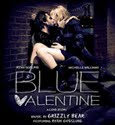 “Blue Valentine” – Grizzly Bear & Various Artists
“Blue Valentine” – Grizzly Bear & Various Artists
Lost in the wilderness between score and soundtrack compilation, the score for Derek Cianfrance‘s “Blue Valentine” was originally intended to be provided by Brooklyn psych-rock band Grizzly Bear, who were asked to be involved by the director three years ago. But with the film taking some time to reach theaters, and the band’s most recent record, Veckatimest, launching them to new heights, the band had to unfortunately drop out. But, they didn’t want to let Cianfrance down, and allowed him full use of their back catalog, which is extensively incorporated into the film, along with songs from The Dirtbombs, star Ryan Gosling and, most memorably, Penny & The Quarters‘ “You and Me.” We’re not sure that there’s a band around who were a better fit for the NYC-commuter-belt, semi-bohemian world that Cianfrance paints, and tracks like “I Live With You” and, in particular, the explosive power of “Alligator (Choir Version)” only make you wonder for what they could have turned out if they’d purpose-built a score.
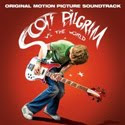 “Scott Pilgrim Vs. the World” – Beck and Various Artists
“Scott Pilgrim Vs. the World” – Beck and Various Artists
The concept behind the music for “Scott Pilgrim Vs the World” was inspired: each fictional band that appeared on screen would be anchored by some real-life band who would write and record the music. For instance, Beck does all the music for Scott’s lame indie band Sex Bob-Omb, while Metric does the song for glam rock band Clash at Demonhead. The soundtrack collects these tracks, many of which are heard for the first time in full (on the commentary, director Edgar Wright says that the only “extended cut” he’d ever want to do would just have complete versions of the songs). Plus, you get some expertly chosen soundtrack cuts (things like Frank Black’s “I Heard Ramona Sing”) and Beck singing the Sex Bob-Omb songs. Few things challenged the unalloyed joy of the ‘Scott Pilgrim’ soundtrack.
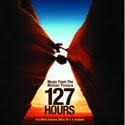 “127 Hours” – Various Artists
“127 Hours” – Various Artists
OK, this one straddles the line between both score and soundtrack, because in addition to some really well thought out song choices, the score by A.R. Rahman is also one of the year’s best. But let’s start with the tunes shall we? We always sort of wondered how Danny Boyle would tackle the seemingly grim story of Aron Ralston’s survival tale, but he does so with a jacked-up energy we never expected, perfectly captured in Free Blood‘s righteously infectious “Never Hear Surf Music Again,” which kicks off the film. Bill Withers keeps the surprisingly upbeat tone with the stone cold classic “Lovely Day,” Plastic Bertrand’s “Ca Plane Pour Moi” expertly encapsulates youthful abandon, and Sigur Ros‘ “Festival” is the choice soundtrack cut of the film, racing our hero to his arresting and heart-stirring rescue. But the real surprise? The original song “If I Rise” by Dido and Rahman which does a lot of key emotional work right before Ralston makes the decision to cut his own arm off. But we can’t talk about that scene without talking about Rahman’s “Liberation,” a wickedly ragged guitar riff driven piece that heightens every nerve and sinew cut in that breathless sequence. Sure, this one isn’t stacked to the gills with Pitchfork-approved songs but it’s a shining example of how smart and well-placed choices can make a big difference in the tenor of a film.
 “The Killer Inside Me” – Various Artists
“The Killer Inside Me” – Various Artists
Yes, no soundtrack was actually released, but as a collection of music featured in a film that was entirely engaging and one that caught our attention and never let up, Micheal Winterbottom‘s controversial serial killer noir, “The Killer Inside Me” starring Casey Affleck, Jessica Alba and Kate Hudson, totally fit that bill. A strange, feverish and twisted film not without a (warped) sense of humor, Winterbottom chose to set the film to not only to country and western of that Oklahoma milieu (Neal Merritt, Al Petty, The Lonestar Playboys, Charlie Feathers to name a few), but the opera and dramatic classical music that the picture’s protagonist Lou Ford apparently listened to (one great example is Gaetano Donizetti’s “L’elisir d’amore,” there’s also appearances by Enrico Caruso, Gustav Mahler, Richard Strauss and more) giving the drama a Kubrick-ian sheen to its already chilling qualities.
 “Exit Through the Gift Shop” – Various Artists
“Exit Through the Gift Shop” – Various Artists
Most of the time, a soundtrack compilation gets on this list because of a consistently well-selected group of songs, songs that perfectly reflect the film they accompany. And that’s not to say that most of the music in Banksy‘s “Exit Through the Gift Shop” doesn’t work — the score, by Portishead‘s Geoff Barrow and drum and bass legend Roni Size, is decent, and the more distinctive song picks, which include Norwegian electronica artist DISKJOKKE, New Mexico’s Balkan folk band A Hack and A Hacksaw, and Air‘s iconic “Kelly Watch the Stars,” all neatly sum up the multi-faceted elements of the director and the film he created. But mainly, the soundtrack made our year-end list because of one song in particular; Richard Hawley‘s “Tonight the Streets Are Ours.” The track (which will one day be the first dance at this writer’s wedding) bookends the film, and is a gorgeous, swooning piece of crooning, simultaneously the most surprising choice the director could have made, and the most logical. Well played, Banksy, you secretive bastard, well played.
“ Repo Men” – Various Artists
Repo Men” – Various Artists
Despite the movie coming and going, it was hard for us to forget the eclectic soundtrack for “Repo Men.” Befitting the source material, the novel “Reposession Mambo,” there are tracks in the film from Rosemary Clooney and Nina Simone, but the production also found time for spare cuts from Toots and the Maytals, Beck and William Bell, the last one refashioned as a song being mixed by the RZA in one pivotal scene. But it’s the film’s two closing sequences that caught our interest, first in an “Oldboy” homage of a brawl scored to UNKLE’s kinetic “Burn My Shadow” followed by an absolutely delirious sex scene set to Moloko’s sensual “Sing It Back.”
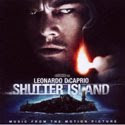 “Shutter Island” – Various Artists
“Shutter Island” – Various Artists
For his A-list, B-movie Martin Scorsese abandoned his oft-used classic rock soundtrack habits and, in seemingly a tip of the hat to Stanley Kubrick, adopted a selection mostly of various modern classical pieces. Contemporary composers such as Brian Eno and Max Richter (whose score for “Waltz With Bashir” we loved) were used, as modernist favorites like Krzysztof Penderecki and Györgi Ligeti, amongst others. The result was another layer of eerie paranoia for a film that dove headfirst into the slowly deteriorating mind of its protagonist and a double disc set that practically serves as a primer for modern classical work. But for those of you still hankering for something from Scorsese’s CD collection of pre-rock’n’roll, singer Johnnie Ray, blues legend Lonnie Johnson, and jazz singers Kay Starr and Dinah Washington round out the set and hearken back to the director’s typical soundtrack milieu.
 “Hot Tub Time Machine” – Various Artists
“Hot Tub Time Machine” – Various Artists
Dumb, asinine, bereft of all intelligence, Steve Pink‘s “Hot Tub Time Machine” was a riot of the inane, but lord was it a fun good time (thank you scene stealer Rob Corddry). To boot, this absurdist nostalgia trip did its best to leverage the ironically bad and genuinely good tunes of that era. New Order, Scritti Politti, English Beat, Spandau Ballet, Talking Heads, Motley Crue, INXS, ’80s Bowie, Echo & the Bunnymen, and a rediscovered gem in Men Without Hats‘ “Safety Dance? Yes, please.
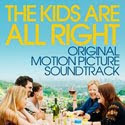 Honorable Mention/The Rest: As we mentioned, scores ruled this year, while soundtracks took a backseat. The “Greenberg” soundtrack with a score by LCD Soundsystem‘s James Murphy‘s should have made our top 5 — This Is Happening is easily one of the best records of the year — but unfortunately, Murphy’s plodding score was underwhelming. The soundtrack itself did have a few great cuts in Duran Duran and Galaxie 500, but their use in the film, much like “Margot At the Wedding” was fairly unnoticeable. The AC/DC-scored “Iron Man 2” soundtrack was fairly lame (not to mention a pretty lame musical marketing ploy); The “Life As We Know It” soundtrack was decent — The Black Keys, Roberta Flack, Ray La Montagne — despite a fairly innocuous movie (though nowhere near as awful as it could have been); “The Runaways” had good soundtrack that used cuts by David Bowie, Suzi Quatro, the MC5 and The Stooges, but was unfortunately mired by Runaways songs performed by Dakota Fanning and Kristen Stewart (sorry Twi-hards, it’s true, plus none of you went to support the movie either way); No, we won’t be giving any props to Alanis Morissette‘s godawful contributions to the “Prince of Persia: The Sands of Time” soundtrack, sorry; While Mastodon‘s EP for “Jonah Hex” is full of psych-rock goodness worth listening to on its own, it also provides a gag-reflex memory of the shitbomb of a film, so we don’t spend a lot of time with it either; while nothing revolutionary, the “Due Date” soundtrack — Band of Horses, Cream, Sam & Dave and Ice Cube — had a few inspired cuts; “Wall Street: Money Never Sleeps” was a strong collection of previously-written David Byrne & Brian Eno songs; “The Going The Distance” soundtrack – The Cure, The Pretenders, Cat Power, and The Boxer Rebellion – wasn’t too bad; the old-timey “Get Low” soundtrack featuring The Inkspots, Paul Whiteman, The Steeldrivers, Gene Austin and bluegrassy score by Jerry Douglas was a fine diversion from the indie-rock heavy soundtracks that seem to dominate every film these days (and therefore put us to sleep for the most part); the “MacGruber” soundtrack featured a lot of the faceless, bland indie-rock that gets shoehorned into films (Wolfmother seems to be in every single one of them), but thanks to its ’80s theme, had some fun, ironic use of tracks from Toto, Mr. Mister, and Eddie Money; Featuring David Bowie, Fever Ray and Deerhoof, “The Kids Are All Right” soundtrack was a good example of how to use “hip” music well and emotionally paying things off with the excellent use of MGMT‘s “The Youth” in the film’s great conclusion.
Honorable Mention/The Rest: As we mentioned, scores ruled this year, while soundtracks took a backseat. The “Greenberg” soundtrack with a score by LCD Soundsystem‘s James Murphy‘s should have made our top 5 — This Is Happening is easily one of the best records of the year — but unfortunately, Murphy’s plodding score was underwhelming. The soundtrack itself did have a few great cuts in Duran Duran and Galaxie 500, but their use in the film, much like “Margot At the Wedding” was fairly unnoticeable. The AC/DC-scored “Iron Man 2” soundtrack was fairly lame (not to mention a pretty lame musical marketing ploy); The “Life As We Know It” soundtrack was decent — The Black Keys, Roberta Flack, Ray La Montagne — despite a fairly innocuous movie (though nowhere near as awful as it could have been); “The Runaways” had good soundtrack that used cuts by David Bowie, Suzi Quatro, the MC5 and The Stooges, but was unfortunately mired by Runaways songs performed by Dakota Fanning and Kristen Stewart (sorry Twi-hards, it’s true, plus none of you went to support the movie either way); No, we won’t be giving any props to Alanis Morissette‘s godawful contributions to the “Prince of Persia: The Sands of Time” soundtrack, sorry; While Mastodon‘s EP for “Jonah Hex” is full of psych-rock goodness worth listening to on its own, it also provides a gag-reflex memory of the shitbomb of a film, so we don’t spend a lot of time with it either; while nothing revolutionary, the “Due Date” soundtrack — Band of Horses, Cream, Sam & Dave and Ice Cube — had a few inspired cuts; “Wall Street: Money Never Sleeps” was a strong collection of previously-written David Byrne & Brian Eno songs; “The Going The Distance” soundtrack – The Cure, The Pretenders, Cat Power, and The Boxer Rebellion – wasn’t too bad; the old-timey “Get Low” soundtrack featuring The Inkspots, Paul Whiteman, The Steeldrivers, Gene Austin and bluegrassy score by Jerry Douglas was a fine diversion from the indie-rock heavy soundtracks that seem to dominate every film these days (and therefore put us to sleep for the most part); the “MacGruber” soundtrack featured a lot of the faceless, bland indie-rock that gets shoehorned into films (Wolfmother seems to be in every single one of them), but thanks to its ’80s theme, had some fun, ironic use of tracks from Toto, Mr. Mister, and Eddie Money; Featuring David Bowie, Fever Ray and Deerhoof, “The Kids Are All Right” soundtrack was a good example of how to use “hip” music well and emotionally paying things off with the excellent use of MGMT‘s “The Youth” in the film’s great conclusion.
– Gabe Toro, Oliver Lyttelton, Drew Taylor, Erik McClanahan, Kevin Jagernauth

